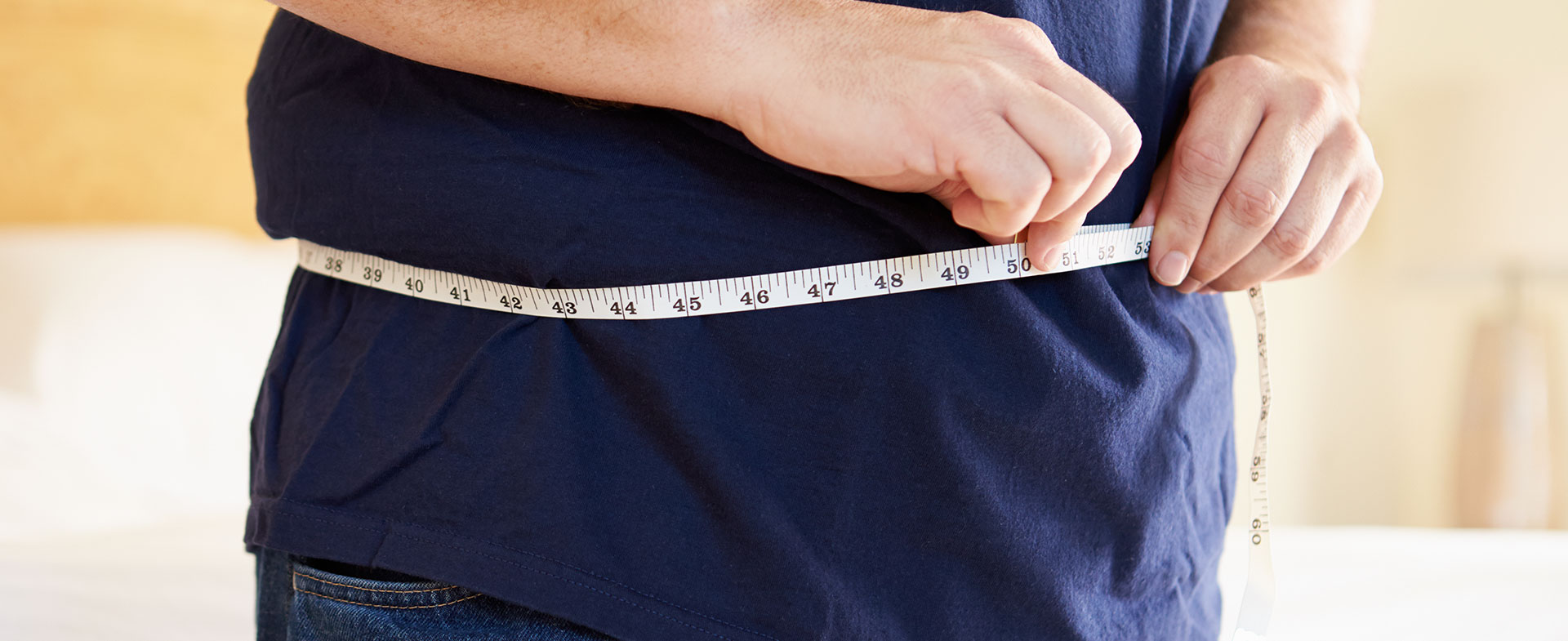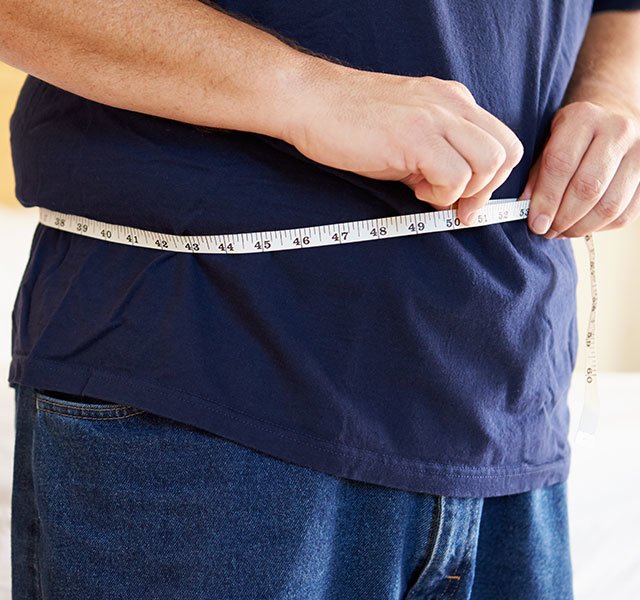While packing extra pounds increases your risk for countless diseases, new research suggests that where you carry the extra baggage is actually more important than the number on the scale. Beer belly, we’re talking to you!
Turns out, an un-whittled middle poses a major health threat. Unlike the flab you can grab just under the skin, the fat that hides in the spaces between and around your organs (called visceral fat) produces toxins that affect the way your body works. Some of these toxins are inflammatory chemicals. Others are hormones that wreak havoc on blood sugar control. All combined, they lead to an increased risk of diabetes, heart disease, high blood pressure and even some forms of cancer, explains Henry Ford family medicine physician Dina Ibrahim, M.D.
So even if you’re not seriously overweight, fat around your abdomen could be a sign of trouble. On the plus side, putting into place the same diet and exercise strategies you use to shed pounds overall will also help you banish belly fat.
Here are 7 strategies you can try today:
- Eat your veggies. Vegetables, especially if they’re fiber-rich (like broccoli, spinach and collard greens), fill you up without weighing you down. A bonus: Loading up on 8 to 10 fruits and vegetables daily as part of a low-fat diet can lower your risk for blood pressure, heart disease and diabetes.
- Ditch the sugar. Empty calories are enemy number one when you’re trying to trim down. Instead of eating processed and sugar-filled foods, focus on fruits, vegetables, whole grains, lean protein and healthy fats (like those in nuts, fish, avocadoes and olive oil). “Foods like grains and nuts don’t tend to deposit in the abdomen the way potato chips, sweetened beverages and straight sugar does,” says Dr. Ibrahim.
- Pump some iron. Muscle burns more calories than fat. So while doing a million crunches won’t obliterate your belly, engaging in activities that work multiple muscle groups (think lunges, push ups and squats) helps increase your metabolic rate, so you burn more calories even when you’re sitting still.
- Stand up. New research suggests sitting down for long periods of time is dangerous. Instead of sitting at your desk, move around while you dictate notes, or read papers and emails while standing up. Better yet, go for a sprint around the block. Vigorous exercise in particular seems to be an effective way to lose belly fat.
- Lose the beer. “One gram of alcohol is 7 calories, and your body processes it in the same way as fat,” says Dr. Ibrahim, “so whether you’re drinking beer, wine or liquor, drinking alcohol is almost like drinking fat.” Want to hit happy hour after a tough day? Limit yourself to just a drink or two, and choose light beer. It’s lower in calories (and alcohol content) than traditional varieties and craft beers.
- Get more sleep. Not getting enough sleep wreaks havoc on your hormones. “When you’re tired, you produce hormones that actually trigger cravings,” explains Dr. Ibrahim. Your best bet: Get enough rest (aim for 7 to 9 hours each night), maintain a regular sleep/wake schedule (even on weekends) and create a soothing bedtime routine that encourages restful sleep.
- Relax. Stress causes your body to pump out the stress hormone cortisol. Cortisol puts your body on high alert. To prepare for a fight or flight, cortisol breaks down lean muscle (since lean muscle burns calories more efficiently) and holds onto fat in the belly region (because it’s the most difficult to ditch). If you feel your heart pumping fast or you know you’re stressed, take a few minutes and breathe deeply. Consciously relax your belly, slow down your breathing and repeat a comforting mantra or saying. Most importantly, dedicate time to changing the things in your life that cause you stress, whether that means searching for a new job or ending a harmful relationship.
Not sure if your waistline spells trouble? Break out your tape measure, and put it around your waist at belly button-level (so the tape measure is parallel to the floor). Don’t hold your breath or suck in your stomach. If you’re a woman, a waist circumference above 35 inches means you are at higher risk for type 2 diabetes, high blood pressure and heart disease. For men, anything over 40 inches means an increased risk.
“If you’re experiencing abnormal weight gain, you may have a hormonal imbalance,” says Dr. Ibrahim. Your doctor can help pinpoint the problem and prescribe medications and treatments to help reverse your expanding waistline.
But if your gut is a product of too much beer (or brats!), strive for a slow, steady weight loss (1 to 2 pounds each week) to trim the fat and keep it from coming back.
Find out your ideal weight. Take our free Healthy Weight Quiz.
Need help getting and staying on track? Learn more about Henry Ford’s clinical weight management programs, offered at locations across metro Detroit.
Dr. Dina Ibrahim is a board-certified family medicine physician seeing patients at Henry Ford Medical Center – Royal Oak.



